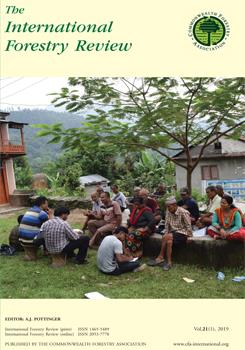Payment for environmental services (PES) projects can potentially improve environmental and livelihood outcomes. While pilot projects offer valuable lessons, these are often lost especially if the project fails. Here we assess how and why a forest-for-carbon linked charcoal production project, developed in Central Uganda under the Clean Development Mechanism, failed to achieve its goals (e.g. collaborative establishment of a charcoal production plantation using indigenous species and improved forest protection). We draw upon interviews and focus group discussions with project participants, non-participants and forest authorities. Findings suggest that inadequate project benefits, conflicts over project goals, distrust, poor communication and weak institutional capacity undermined the likelihood of project success. Most shortcomings were evident before the project started. Our conclusion is that projects must invest in recognising and addressing challenges in advance. In addition, good pre-implementation assessments, as well as transparent and accountable decision procedures would improve project outcomes.
How to translate text using browser tools
15 March 2019
Learning from Failure: Lessons from a Forest Based Carbon and Charcoal Project
K. Aganyira,
R. Kabumbuli,
V.B. Muwanika,
D. Nampanzira,
J.R.S. Tabuti,
D. Sheil
ACCESS THE FULL ARTICLE

International Forestry Review
Vol. 21 • No. 1
March 2019
Vol. 21 • No. 1
March 2019
carbon sequestration
community participation
payment for environmental services
project planning
REDD+
Uganda




